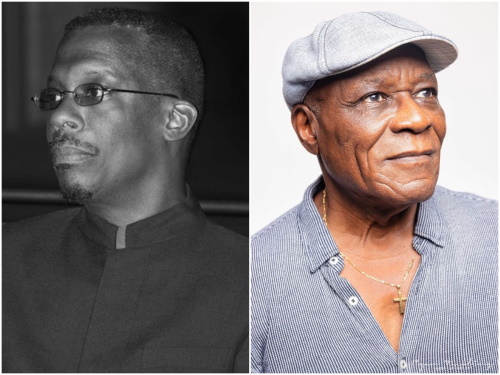 PHILIPSBURG:--- Two of St. Martin’s authors, Lasana Sekou and Fabian Badejo, have praised the historic Africa-CARICOM Summit held virtually on September 7, 2021, said their publisher HNP.
PHILIPSBURG:--- Two of St. Martin’s authors, Lasana Sekou and Fabian Badejo, have praised the historic Africa-CARICOM Summit held virtually on September 7, 2021, said their publisher HNP.
The summit was hosted by Kenya and chaired by Kenyan President Uhuru Kenyatta under the theme “Unity across Continents and Oceans: Opportunities for Deepening Integration.”
The event was attended and addressed by the heads of state and government of the African Union and CARICOM member states. Heads of regional integration secretariats and institutions of CARICOM and Africa also attended.
“This is the unique culmination of continuous efforts by the people of Africa and the Caribbean to solidify the historical, cultural, and blood connections that they share across centuries,” said Sekou, a poet, and publisher.
“It is the spirit of the African connections so concretized by Garvey that lives on among us,” said Sekou. The pan-African and pan-Caribbean themes of Sekou’s poetry have long been reviewed in critical journals and books.
“Blood is indeed thicker than water,” noted Badejo. “Throughout history, the longing for reconnection between Africa and the African Diaspora has never waned.”
The longing and connectedness—often against great political and social odds and even violence—may be subtle as hush-hush stories in Caribbean families about an African ancestor, to defiantly speaking African-based Caribbean languages; “from folk songs of longing sung in Carriacou for centuries, to Cuba’s decades-long role in the liberation of southern African countries,” said the writers in a joint statement.
“Just as Europe, and in particular the UK, has special relations with its diaspora, especially in the USA, so too it should be considered natural for Africa to have similar special relations with people of African descent in this part of the world,” said Badejo.
The late, great Barbadian poet and historian Kamau Brathwaite, who lived and worked in Ghana and Kenya at the onset of his career, understood this from a personal and professional point of view, Badejo explained.
“So did many others understand and inform this point of view practically and intellectually, from David Walker to Marcus Garvey, from Queen Mother Moore to Kwame Nkrumah,” said Badejo, who is also a journalist and cultural critic.
The summit produced proposals to further strengthen the ties between the two regions. These include direct air links between destinations in Africa and the Caribbean and visa-free travels for the citizens of African and CARICOM countries.
“The Leaders indicated support for the establishment of a CARICOM/Africa public-private partnership dedicated to mobilizing resources and deploying them in critical cutting-edge projects, including renewable energy, the creative industries, and digital technology … (And) the contribution of the African Medical Supplies Platform (AMSP) in making vaccines available to CARICOM was lauded,” according to CARICOM news.
Sekou said that “It is key for the general populations to see themselves as the foundation of this official level summit. What this multilateral cooperation will achieve over time, including ‘wielding global bargaining power,’ widening the diasporic reach to include non-CARICOM members in the region and institutions of Brazil and other nations of the Americas, is invariably based on people’s movements.”
“It is the same people’s movements and consciousness that produce activists and artists such as St. Martin’s Thomas Duruo and Carlos Cooks, Trinidad’s Claudia Jones, Jamaica’s Bob Marley, Antigua’s Dobrene O’Marde, or Barbados’ Ambassador to CARICOM David Comissiong. And that’s just to name a few of the many who have been about this pan-African liberation business,” said Sekou.
While on September 7, CARICOM “proposed the creation of a Forum of African and Caribbean Territories and States,” both authors said that for St. Martin to critically tap into the opportunities that are sure to open because of the initiatives proposed at the summit, the nation has to act on Nkrumah’s dictum and seek political independence.
“We are at a critical time when we must join the comity of nations coming together to build and rebuild the world to benefit our people. We can only do this if we attain political freedom,” Sekou and Badejo stressed.
This first Africa-CARICOM Summit was a giant step towards pan-African unity, which will facilitate political, economic, educational, cultural, and technological cooperation, Sekou and Badejo said.
“We applaud the vision of all those who made this summit possible on both sides of the Atlantic and encourage them to intensify their efforts to achieve the goal of reuniting the African family at home and abroad,” they added.
It has also been proposed at the Africa-CARICOM Summit for September 7 to be observed annually as “Africa-Caribbean Day.”











